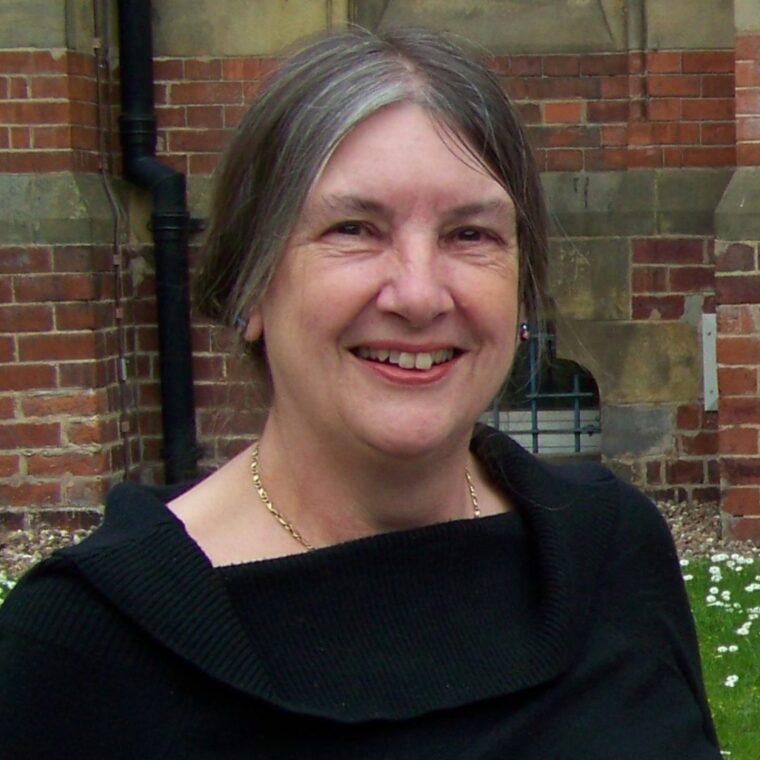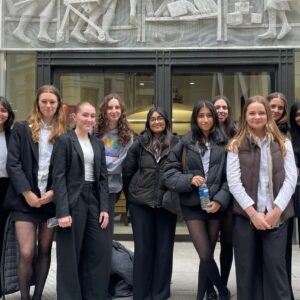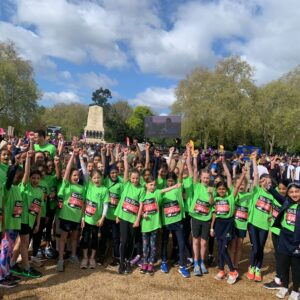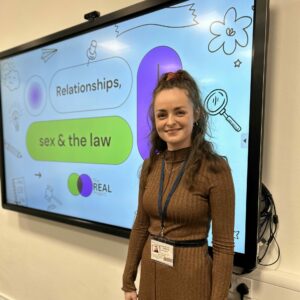News & Events
Alumnae spotlight: Professor Joanna Shapland
February 9, 2024

Professor Joanna Shapland, Class of 1968
Professor Joanna Shapland is a British criminologist, forensic psychologist, and academic specialising in restorative justice and victimology. She started her academic career at King’s College, London, researching mitigation in the criminal courts, before moving to the University of Oxford as a Junior Research Fellow and Research Fellow. At Oxford, she directed the first major research on the experiences of victims in the criminal justice system, looked at the public’s views of policing, and was editor of the British Journal of Criminology. She acted as an expert to the Council of Europe and the United Nations.
Joanna moved to the University of Sheffield, where she was first a Research Fellow, then Lecturer, Senior Lecturer and Professor. She has continued her interest in victims as Executive Editor of the International Review of Victimology and through advising governments in relation to criminal justice in England & Wales, Scotland, Northern Ireland and the Republic of Ireland, as well as Victim Support Europe. Following the Good Friday Agreement, she was a member of the Review of Criminal Justice in Northern Ireland. She directed the national evaluation of restorative justice in England & Wales, which has shaped government policy on restorative justice in England & Wales and Scotland. She has also worked with the General Council of the Bar and the Law Society on careers in the legal profession. She was appointed to the Edward Bramley Chair of Criminal Justice in 2013. She is an Honorary Member of The British Society of Criminology, which has always been a major element of her professional life. More recently, she was on the Professional Affairs Committee.
In April this year, the Centre for Criminological Research held a successful international conference on ‘Shifting logics in Criminal Justice’ in honour of Professor Joanna Shapland for her many and varied contributions to criminology and criminal justice. This was an outstanding event in terms of the quality of speakers, papers and discussion, and it gave Joanna the tribute she deserves for her leadership and contribution to criminology and criminal justice in the School of Law, the UK, and internationally.
Joanna states,
“I have always been slightly eclectic in pursuing a number of lines of research at the same time. The thread running through them has been how lay people interact with criminal justice, more recently comparatively in different countries. My long-term interest in victims of crime, the way they are treated, and the role they should have in different legal systems continues and has diversified into a fascination with the processes of restorative justice and how they compare to more traditional criminal justice.”
We caught up with Anna recently for a Q&A session:
What aspects of Croydon High School did you enjoy and find most rewarding?
I enjoyed many things about Croydon High School, both in the old buildings in the centre of Croydon, though they were a little cramped, and in the extraordinarily spacious and elegant new buildings to which the school moved when I was in the sixth form. I played the violin then and immensely enjoyed playing in the orchestra, rising to lead it – though it was very scary when we entered a competition which meant playing in the concert halls in the centre of Croydon.
What did you aspire to whilst at school?
At Croydon High, I did science, so I envisaged going on to do chemistry when I went to university, though I never quite managed to fit neatly in the science box. I certainly didn’t imagine that I would end up doing criminology and criminal justice – that was the effect of volunteering to do children’s holiday play schools and working in slum areas when I was at university.
How did Croydon High School empower you for your future?
I think for the sheer variety of people, subjects and interests it was possible to follow. It made very different subjects and pursuits interesting, and I’m still a jackdaw and generalist, which has been really useful in doing research with different people in relatively political fields, like victimisation, policing and restorative justice – as well as editing an international journal on victims.
What has been your proudest moment?
I was a member of the government’s Review of Criminal Justice in Northern Ireland as an independent assessor, which was part of the Good Friday Agreement and looked at the whole criminal justice process in Northern Ireland. A proud moment was when we came through the two years of the Review and realised, at the press conference, that we had produced something, parts of which, at least, were seen to be useful in progressing criminal justice in the very particular context of Northern Ireland after the Troubles, and providing opportunities for people to talk together. A moment which came close was when I was awarded the Outstanding Achievement Award by the British Society of Criminology, the professional body for criminologists.
What are your hopes for the future?
Well, I hope I can continue to be useful to younger scholars and colleagues and occasionally to think of new ideas and new ways of thinking about crime and justice.
What would you say to your younger self?
Life is surprising, but it’s all interesting – so go for it.
Mrs Karen Roe
Alumnae Relations Manager
More news
Sixth Form
Lower Sixth GDST Lead Programme 2024
Junior School
Year 5 Wearable Tech Challenge 2024
Junior School



